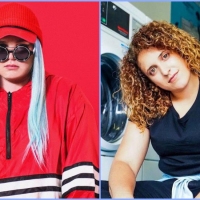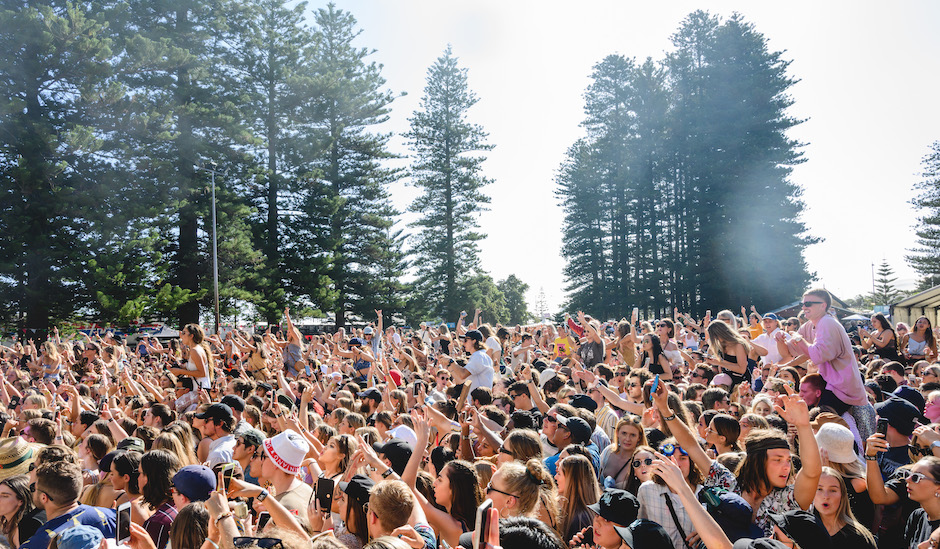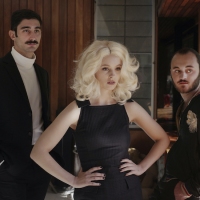 Introducing That One Song, Tones and I's competition to boost musicians during COVIDAnd one of the first winners is a Perth-based favourite whose come-up has been a long time in the making.
Introducing That One Song, Tones and I's competition to boost musicians during COVIDAnd one of the first winners is a Perth-based favourite whose come-up has been a long time in the making.

Australia's festival market is looking grim, but don't give up hope
This morning came news that Falls Festival is officially cancelled for 2020/2021, but that doesn't mean you should be giving up hope for music this summer.
Over the last few months, you've probably grown tired of hearing about all the festivals cancelled for the forthcoming summer festival season. Throughout the entirety of coronavirus' duration so far, one thing has been abundantly clear - that festivals can't operate in their current form with even a slither of the pandemic present in local communities, and considering how high attended and tightly-packed these festivals typically are, you can't exactly blame them either; it's a hot-bed for something bad going wrong.
When the outbreak first happened, festivals took a range of approaches. The Drop and Groovin the Moo - two festivals that were meant to start amidst the peaks of the virus' first wave - were cancelled altogether, with organisers electing to focus forward onto the 2021 events instead. Others, such as Splendour - and international festivals such as Coachella - chose to postpone, moving winter festivals to October in the hope that the virus would be eradicated by then (which unfortunately, proved a little too ambitious, with both festivals moving on to 2021 now).
This time of year is typically when announces start heating up, with Listen Out due to take place around a month from now, and festivals such as Falls Festival, Laneway and the New Year conglomerate - Beyond The Valley, Origin Fields, Field Day etc. - all announcing their lineups. Instead, we're being faced with cancellations. First, Listen Out - who are taking a break this year, understandable as their event is often quite international-heavy - then Falls Festival, who announced they were going All-Australian for 2020/2021, but this morning, announced their decision to entirely 'raincheck' the event - i.e. look onwards to next year.
It's a grim time, not just if your in a situation where you work directly with or alongside the festivals - in promoting the festival itself, or in one of the many areas festivals benefit, such as tourism and food - but for those that get a moment of escapism with festival season; the idea of sitting in the sun, surrounded by 20,000 other people, drinking a half-warm and over-expensive Smirnoff Double Black being the peak epitome of summer #vibes, all whisked away because of something entirely unforeseen and out of their control.
However, if you're one of those people who are feeling particularly disheartened by everything going on regarding the upcoming festival season, then lift up your chin and keep looking forward - because it's not entirely over yet. Sure, the likelihood of any festivals going ahead this summer are incredibly slim. A lot of festivals rely on international talent - which is effectively ruled out for who knows how long now, considering the US' inability to fight the virus - and border closures and State of Emergencies make it difficult to do something all-local too; many acts would have to sacrifice two weeks of potential local shows / promotional opportunities to quarantine for a more-than-likely small paycheck.
When festivals do come back, be that in 2021 or later on, then coronavirus is giving them an opportunity to grow. Over the last few years, we've heard repeatedly with festival announces that they're all looking too 'same-same'; festivals plucking from the same talent pool of acts - predominately triple j-favoured - to create similar-but-different lineups that would have particular acts play as many as eight major festivals in the space of just a few months. There's also the important discussions around representation, and what festivals can better do to amplify female-identifying, non-binary, indigenous, queer and non-white musicians on their lineups.
Coronavirus giving festivals a year break allows reflecting, and with that - usually - comes growth. Festivals will have to think out of the box to survive, especially if the talent pool of acts shrinks with international restrictions. They'll have to be creative; book 'risky acts' that often don't get a light shined upon them over festival season despite being commercially popular, or book acts that typically sit outside of a general festival lineup (which in turn, often includes a lot of the marginalised musical communities just lifted).
Sure, things might be grim right now. Still, darkness always leads to evolution as they say, and this could provide a grim realisation for a lot of festivals that change is needed to survive, and encourage the exact creative thinking that could counteract a lot of the problems brought up during festival season every year. Lineups will change, and who knows? Maybe festivals will even focus away from lineups, and instead provide more full-rounded experiences similar to Glastonbury, where the festival lineup - although mighty - is only a slither of the full list of things you can enjoy.
In the meantime, however, music is still happening. In areas such as West Australia, gigs are back in full force, putting money in artists pockets after a long time of being drained. Go and see these acts, support the band and the team around them, support the promoters who more than often, work alongside festivals at the same time as promoting smaller, regional tours. In areas such as New South Wales and Queensland - where gigs are emerging, albeit in different forms - you can also support live music, but be sure to do so only if you're not jeopardising the health of yourself or others (be responsible!).
Hell, even if live music isn't back entirely where you live, it doesn't mean you can't help out. Online festivals such as Isol-Aid deliver quality lineup after lineup that brings somewhat of a musical experience without the risk of catching something out and about, and you'd be surprised by how streaming a live show from an artist - whether it be their triple j From The Wireless shows on Spotify, or live albums on vinyl available via Bandcamp - can go a long way to help out.
Sure, the live music scene is looking incredibly grim at the moment, but it was already facing its problems long before coronavirus. If anything, this is going to give them the chance to explore new avenues, take exciting new risks, and be creative - something that's been long-missing from a lot of festivals, according to those in the comments of every single festival announce over the last five years.
Hold your head up high, keep looking forward, and if the lack of festivals are really bothering you, take a trip down to the park - responsibly - with a $13 cider can that you've left in the sun for 30 minutes and play RÜFÜS DU SOL off your loudspeaker - maybe it can just do the trick.
 Introducing That One Song, Tones and I's competition to boost musicians during COVIDAnd one of the first winners is a Perth-based favourite whose come-up has been a long time in the making.
Introducing That One Song, Tones and I's competition to boost musicians during COVIDAnd one of the first winners is a Perth-based favourite whose come-up has been a long time in the making.
 PSA: San Cisco have just announced a hometown album launch show this OctoberThey'll be joined by Stella Donnelly and Adrian Dzvuke at Fremantle Arts Centre on October 30th.
PSA: San Cisco have just announced a hometown album launch show this OctoberThey'll be joined by Stella Donnelly and Adrian Dzvuke at Fremantle Arts Centre on October 30th.